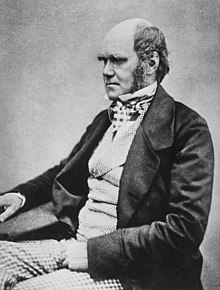
English agnostics
Agnosticism is the view or belief that the existence of God, of the divine or the supernatural is unknown or unknowable. Another definition provided is the view that "human reason is incapable of providing sufficient rational grounds to justify either the belief that God exists or the belief that God does not exist."The English biologist Thomas Henry Huxley coined the word agnostic in 1869, and said "It simply means that a man shall not say he knows or believes that which he has no scientific grounds for professing to know or believe." Earlier thinkers, however, had written works that promoted agnostic points of view, such as Sanjaya Belatthaputta, a 5th-century BCE Indian philosopher who expressed agnosticism about any afterlife; and Protagoras, a 5th-century BCE Greek philosopher who expressed agnosticism about the existence of "the gods".
6 episodes
Episodes in this category also belong to the following categories:
Aldous Huxley's Brave New World
Melvyn Bragg and guests discuss Aldous Huxley's dystopian 1932 novel Brave New World and its vision of a future of test tube babies, free love and round-the-clock surveillance.
9 April 2009
Featuring: David Bradshaw, Daniel Pick, Michèle Barrett
Culture20th-century English novelistsEnglish travel writersPhilosophers of literatureEnglish male short story writersJames Tait Black Memorial Prize recipients20th-century English philosophersPhilosophers of technologyMale essayistsEnglish emigrants to the United StatesBritish philosophers of culture, English pacifistsEnglish science fiction writersEnglish male novelistsBritish philosophers of mindPeople educated at Eton CollegeEnglish male poetsAnti-consumerists20th-century mysticsAlumni of Balliol College, OxfordEnglish short story writersNew Age predecessorsEnglish essayistsEnglish satirists20th-century British essayistsLost Generation writersEnglish agnosticsDuke University facultyBertrand Russell
Melvyn Bragg and his guests discuss the influential 20th-century British thinker Bertrand Russell, widely regarded as one of the founders of Analytical philosophy.
6 December 2012
Featuring: A. C. Grayling, Mike Beaney, Hilary Greaves
PhilosophyNobel laureates in LiteratureBritish philosophers of languageGeorgistsEnglish political writersFree love advocatesSet theoristsAristotelian philosophersWriters about religion and scienceJerusalem Prize recipientsFellows of Trinity College, CambridgeEnglish logiciansPhilosophers of mathematicsBritish historians of philosophyEmpiricistsOntologistsMetaphysics writersBritish political philosophersFellows of the Royal SocietyMetaphilosophersTheorists on Western civilizationBritish ethicistsPhilosophers of literatureBritish free speech activists20th-century English philosophersAnalytic philosophersEnglish humanistsRhetoric theoristsAtheist philosophersEnglish political philosophersEnglish anti-fascistsEnglish people of Scottish descentPhilosophers of historyEnglish agnostics20th-century atheistsConsequentialistsEnglish socialistsPhilosophers of social scienceBritish philosophers of religionPresidents of the Aristotelian SocietyLogiciansPhilosophers of lawPhilosophers of sexuality19th-century English mathematiciansCritics of work and the work ethicSecular humanistsPhilosophers of technologyPhilosophers of economicsWriters about globalizationBritish philosophers of educationBritish philosophers of culture, English pacifistsBritish philosophers of logicCritics of the Catholic ChurchPeople from MonmouthshireAlumni of Trinity College, CambridgeLinguistic turnPhilosophers of loveEuropean democratic socialistsBritish consciousness researchers and theoristsWriters about activism and social changeEnglish Nobel laureatesMembers of the Order of MeritEnglish prisoners and detaineesUtilitariansIntellectual historians, University of Chicago facultyEnglish scepticsBritish critics of ChristianityEnglish people of Welsh descentUniversal basic income writersBritish philosophers of mind19th-century English philosophersBritish critics of religionsAcademics of the London School of Economics, British philosophers of science19th-century atheistsUniversity of California, Los Angeles facultyAnti-nationalists20th-century English mathematiciansEnglish essayistsFreethought writersBritish atheism activistsWriters about communism19th-century English essayistsEnglish male non-fiction writersDarwin: On the Origins of Charles Darwin
Melvyn Bragg presents a series about the life and work of Charles Darwin. Darwin's early life and time at Cambridge, where his interests shifted from religion to natural science.
5 January 2009
Featuring: Jim Moore, Steve Jones, David Norman, Colin Higgins
ScienceEnglish travel writersTheoretical biologistsFellows of the Royal SocietyMembers of the Royal Netherlands Academy of Arts and SciencesEnglish AnglicansUtilitariansEnglish abolitionists19th-century British biologists, 19th-century English naturalists, British evolutionary biologists, Fellows of the Linnean Society of London, Fellows of the Royal Geographical Society, Fellows of the Zoological Society of LondonBurials at Westminster AbbeyEnglish sceptics19th-century AnglicansRecipients of the Copley MedalAlumni of Christ's College, CambridgeEnglish agnosticsCharles DarwinAlumni of the University of Edinburgh19th-century English writersCircumnavigators of the globeRecipients of the Pour le Mérite (civil class)Members of the American Philosophical SocietyDeaths from coronary thrombosisMembers of the Royal Swedish Academy of SciencesMembers of the Lincean AcademyIndependent scientistsHuman evolutionRoyal Medal winnersMill
Melvyn Bragg discusses the 19th century political philosopher John Stuart Mill and his treatise On Liberty which is one of the sacred texts of liberalism.
18 May 2006
Featuring: A. C. Grayling, Janet Radcliffe Richards, Alan Ryan
PhilosophyBritish political philosophersHonorary Fellows of the Royal Society of EdinburghEnglish libertariansBritish philosophers of languageConsequentialistsInfectious disease deaths in FranceEnglish socialistsUtilitariansEnglish suffragistsTheorists on Western civilizationBritish ethicistsBritish socialistsEnglish political writersLogiciansEnglish feminist writers, English feministsBritish free speech activistsPhilosophers of sexualityPhilosophy writersBritish classical liberal economistsPhilosophers of economicsBritish social liberals19th-century English non-fiction writersFellows of the American Academy of Arts and SciencesPhilosophers of cultureRectors of the University of St AndrewsPhilosophers of psychologyBritish philosophers of mindEnglish logicians19th-century English philosophersBritish philosophers of logicEnglish autobiographersAnglo-ScotsUK MPs 1865–1868Empiricists19th-century English writersVoting theoristsEuropean democratic socialistsEnglish essayistsEnglish political philosophers19th-century English essayistsEnglish male non-fiction writersEnglish non-fiction writersPhilosophers of scienceEnglish people of Scottish descentPhilosophers of historyEnglish republicansScholars of feminist philosophyEnglish agnosticsBritish male essayistsPaul Dirac
Melvyn Bragg and guests discuss the Bristolian theoretical physicist, ranked alongside Einstein by his peers, who won a Nobel for his work on quantum mechanics.
5 March 2020
Featuring: Graham Farmelo, Valerie Gibson, David Berman
ScienceMembers of the Order of MeritBritish theoretical physicists, Mathematical physicistsFellows of the Royal SocietyAlumni of St John's College, CambridgeForeign associates of the National Academy of SciencesEnglish emigrants to the United StatesNobel laureates in PhysicsRecipients of the Copley MedalInstitute for Advanced Study visiting scholarsEnglish agnostics20th-century British physicists, Members of the Pontifical Academy of SciencesBritish Nobel laureatesForeign members of the USSR Academy of Sciences20th-century English mathematiciansAcademic staff of the University of GöttingenMembers of the American Philosophical SocietyWinners of the Max Planck MedalEnglish Nobel laureatesRoyal Medal winnersRosalind Franklin
Melvyn Bragg and guests discuss the achievements of the pioneering scientist Rosalind Franklin.
22 February 2018
Featuring: Patricia Fara, Jim Naismith, Judith Howard





